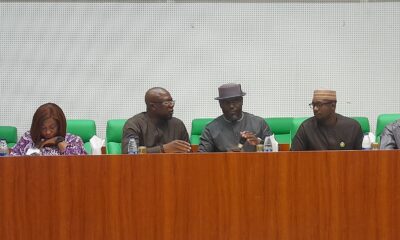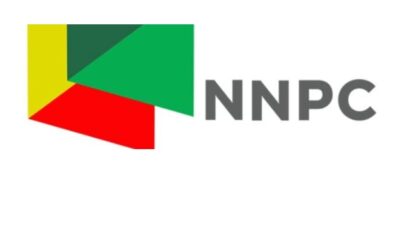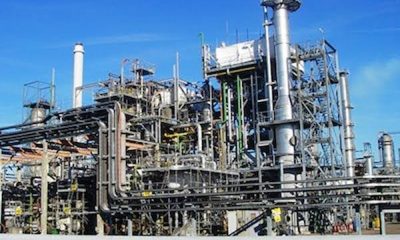News
Energy Reforms Advocates Expose Underhand Dealings in NNPCL’s Crude Oil Allocation: Matrix and GTT Under Scrutiny

The Energy Reforms Advocates, a formidable coalition of activists championing transparency and accountability within Nigeria’s oil and gas sector, has sounded the alarm over an alleged “unholy alliance” between the Nigerian National Petroleum Company Limited (NNPCL) and Matrix Energy Group. This purported partnership, according to the advocates, is specifically designed to deprive Nigeria of crucial tax revenues.
A damning report compiled by the group, led by Dr. Moses Oriri, has unearthed irrefutable evidence linking Matrix Energy’s operations to Malta, a notorious European hub for clandestine blending and ship-to-ship transfers of sanctioned Russian oil and petroleum products.
Further investigation revealed that crude oil allocations by NNPCL to Matrix Energy Group are traded through an intermediary, Gulf Transport & Trading (GTT), registered in the United Arab Emirates (UAE). These allocations, totaling nearly 38% of Nigeria’s oil import quota, allegedly circumvent Nigeria’s tax system, resulting in billions of naira in lost revenue.
Matrix Energy, helmed by Abdulkabir Adisa Aliu, purportedly receives up to four crude oil cargoes per month from NNPCL. Instead of trading these allocations directly within Nigeria, where they would be subject to taxes and government oversight, the crude is rerouted through GTT. This UAE-based trading company allegedly serves as a front for Matrix’s offshore operations.
The scheme enables the oil to be sold at a premium of $3 per barrel, generating substantial profits outside Nigeria’s taxation system. This brazen exploitation not only undermines Nigeria’s economic interests but also raises serious concerns about corruption and money laundering.
An exhaustive examination of documents by Energy Reforms Advocates reveals that this clandestine arrangement yields an estimated $150 million (approximately N240 billion at the current exchange rate of N1,600 per dollar) in untaxed profits annually, denying Nigeria’s treasury much-needed revenue.
Given oil’s status as Nigeria’s primary revenue source, this flagrant exploitation has far-reaching consequences, impacting every sector of the country. The ripple effects of this malfeasance are felt across the economy, exacerbating financial hardships and undermining national development. These illicit gains, which rightfully belong to the Nigerian people, are instead unlawfully appropriated by Matrix Energy and its collaborators, dealing a devastating blow to the nation’s economic well-being.
Further investigation has uncovered an even more alarming aspect of this scheme. Poly Pro Trading, a Dubai-registered entity purportedly operating from OneJLT Towers 05.015 in the Dubai Free Trade Zone, appears to be a fictitious company lacking a physical office presence.
Energy Reforms Advocates categorize this location as a mere “business front,” cleverly designed to lend legitimacy to illicit oil transactions. This revelation raises profound concerns regarding the true nature and intentions of these offshore entities, particularly their role in siphoning Nigeria’s wealth through elaborate schemes.
Further in-depth investigations into Matrix Energy’s operations have uncovered the company’s clandestine involvement in the importation of substandard refined petrochemicals, which are subsequently distributed throughout Nigeria, perpetuating a hazardous cycle of environmental degradation and health risks. Documents obtained by Energy Reforms Advocates reveal that a substantial percentage of Matrix’s imports originate from Malta, a small European nation lacking significant oil refining capacity. However, Malta has gained notoriety for its role in illicitly refining Russian oil, which is then surreptitiously traded to unpatriotic representatives from various countries.
Alarmingly, over 35% of shipments from Malta contain petroleum products of questionable quality, including naphtha and gasoline blends, which fall short of global standards. These subpar products are then transshipped through various African ports, ultimately infiltrating Nigeria’s fuel distribution system.
Notably, diesel from Russia is notoriously off-spec, and diesels from Matrix filling stations have failed the ASTM D4294 test method, which provides a rapid and precise measurement of total sulfur in petroleum and petroleum products with minimal sample preparation. This situation has led to Matrix Energy peddling flammable diesel with toxic fumes to unsuspecting Nigerians, while reaping enormous profits.
The ecological and health consequences of this low-grade fuel are dire. Increased emissions from these substandard products lead to elevated pollution levels, frequent vehicle breakdowns, and a precipitous decline in public health. Experts warn that this illicit trade contributes significantly to Nigeria’s escalating mortality rate, as unsuspecting citizens are exposed to these harmful products. The sheer magnitude of this environmental and health crisis raises urgent concerns about the government’s regulatory oversight and the company’s blatant disregard for human life and the environment.
Energy Reforms Advocates contend that the Nigerian Midstream and Downstream Petroleum Regulatory Authority (NMDPRA) is culpably complicit in the illicit operations, willfully disregarding its statutory responsibility to ensure the quality of petroleum imports. The advocacy group asserts that Matrix Energy inaction is facilitated by its cozy relationship with high-ranking officials like, the Chief Executive Officer of the Nigerian Midstream and Downstream Petroleum Regulatory Authority (NMDPRA),Farouk Ahmed, and the Group Chief Executive Officer of the Nigerian National Petroleum Company Limited (NNPCL), Mele Kyari.
By failing to regulate fuel quality effectively, NMDPRA has created a regulatory vacuum that international commodity traders and Nigerian marketers have exploited with impunity, importing subpar fuels without consequence.
Regrettably, the presence of unpatriotic individuals, including Adisa Aliu, Farouk Ahmed, Mele Kyari, and their associates, in key decision-making positions has perpetuated the corruption plaguing Nigeria’s oil and gas sector. The disturbing revelations surrounding Matrix Energy and Gulf Transport & Trading’s (GTT) unscrupulous business practices not only cast doubt on the integrity of NNPCL’s leadership but also tarnish the reputation of Nigeria’s entire oil and gas industry.
As Africa’s largest oil producer, Nigeria’s economy is heavily reliant on crude exports and the accompanying revenues. However, these illicit dealings deprive the country of vital funds that could be invested in critical infrastructure, education, healthcare, and essential public services. The actions of these unpatriotic elements in power have far-reaching and devastating consequences, severely impacting various aspects of Nigeria’s development, including its economic, social, infrastructure, political, and humanitarian well-being.
With a great insight into the understanding of this situation as a Syndicate operation involving high profile corrupt individuals, the Energy Reforms Advocates are urgently appealing to relevant authorities, notably the Economic and Financial Crimes Commission (EFCC), to initiate a thorough investigation into these illicit activities and prosecute all individuals and organizations implicated.
The advocacy group is also demanding enhanced transparency in the Nigerian National Petroleum Company Limited’s (NNPCL) crude oil allocation processes and more stringent oversight of the nation’s oil export channels to prevent further exploitation.
In response to these disturbing findings, Energy Reforms Advocates are pressing the Nigerian government to conduct a comprehensive review of all crude oil export contracts, ensuring that companies like Matrix Energy and Gulf Transport & Trading (GTT) are held accountable for their actions.
The group is emphasizing the imperative need for sweeping reforms in the oil and gas sector, specifically targeting the pervasive exploitation by foreign entities in collusion with corrupt Nigerian officials.
“This constitutes a systematic plundering of Nigeria’s resources,” declared a spokesperson for Energy Reforms Advocates. “We can no longer tolerate the inaction that enables a select few privileged companies, in cahoots with corrupt officials, to siphon away our nation’s wealth. The time has come for decisive government intervention.”
As this saga unfolds, Energy Reforms Advocates urge Nigerians to remain vigilant, demanding the transformative change desperately needed in this critical sector. The advocacy group persists in its demands for transparency, accountability, and justice on behalf of Nigerians whose future is being jeopardized by these unscrupulous dealings.
News
EU leaders meet in Ukraine demand Russia’s unconditional 30-day ceasefire

In a significant diplomatic push on the ongoing Russia-Ukraine war, European leaders convened in Ukraine’s capital, Kyiv on Saturday, where they called out Russian President, Vladimir Putin, to agree to a 30-day unconditional ceasefire.
The European leaders threatened “massive sanctions” if Moscow fails to comply with their demand, according to Al Jazeera.
French President, Emmanuel Macron, German Chancellor, Friedrich Merz, and British Prime Minister, Keir Starmer, travelled together by train from Poland to Kyiv, later joined by the Polish Prime Minister, Donald Tusk.
The visit marked the first joint mission by leaders of these four European nations to Ukraine.
In a joint press conference with Ukrainian President, Volodymyr Zelenskyy, the leaders underscored their unified demand for an immediate halt to hostilities.
The proposed ceasefire, covering land, sea, and air operations, is seen as a critical step toward ending the three-year conflict.
Macron warned that the European bloc is prepared to escalate sanctions, specifically targeting Russia’s energy and banking sectors, should Putin refuse the proposal.
He also floated the idea of deploying foreign troops as a reassurance measure, saying, “The United States would take the lead in monitoring a proposed ceasefire, with support from European countries.”
Starmer delivered a sharp rebuke, stating, “Only one country started this illegal conflict, and that was Russia and Putin, and only one country stands in the way of resolving it peacefully, and that is Russia and Putin.”
Zelenskyy’s chief of staff, Andriy Yermak, highlighted the visit’s significance, saying, “There is a lot of work to do, a lot of topics to discuss.
“We must end this war with a just peace. We must force Moscow to agree to a ceasefire,” Al Jazeera reports.
Meanwhile, the Kremlin dismissed the European leaders’ demands, describing it as confrontational.
Russian spokesman Dmitry Peskov reportedly said, “We hear many contradictory statements from Europe.
“They are generally confrontational in nature rather than aimed at trying to revive our relations. Nothing more.”
The call for a ceasefire is also backed by U.S. President Donald Trump, who has proposed the 30-day halt as a foundation for peace negotiations.
However, Putin has so far resisted international pressure.
Ukraine’s Foreign Minister Andrii Sybiha reiterated Kyiv’s readiness, saying, “Our country and its allies are ready for a full, unconditional ceasefire with Russia for at least 30 days starting on Monday.”
The visit came a day after Putin struck a defiant tone during a military parade in Moscow commemorating the 80th anniversary of World War II victory, underscoring the entrenched tensions.
Al Jazeera’s Zein Basravi, reporting from Kyiv, noted that while the visit was “symbolic,” it also involved practical efforts to ensure U.S. engagement in future peace talks.
After the meetings, Ukraine’s Ministry of Foreign Affairs confirmed that the five leaders held a phone call with Trump to coordinate their peace strategy.
Sybiha emphasized on X, “If Russia agrees and effective monitoring is ensured, a durable ceasefire and confidence-building measures can pave the way to peace negotiations.”
The leaders issued a joint statement stressing their commitment, saying, “Alongside the US, we call on Russia to agree [to] a full and unconditional 30-day ceasefire to create the space for talks on a just and lasting peace.
“We are ready to support peace talks as soon as possible, to discuss technical implementation of the ceasefire, and prepare for a full peace deal.”
They noted, “The bloodshed must end, Russia must stop its illegal invasion, and Ukraine must be able to prosper as a safe, secure and sovereign nation within its internationally recognised borders for generations to come.”
News
NDLEA nabs Iran-bound woman with cocaine in private part, stomach, bag at PH airport(Photos)

. ..arrests 22-year-old British ex-convict with large drug shipment at MMIA; intercepts fuel tanker, 3 vehicles with 3, 047kg skunk in Niger, 775 litres of codeine in Kano
Desperate attempt by a woman, Ihensekhien Miracle Obehi who disguised with hijab to export large consignments of cocaine concealed in her private part, stomach and false bottom of her handbag to Iran has been thwarted by operatives of the National Drug Law Enforcement Agency (NDLEA) at the Port Harcourt International Airport, Port Harcourt, Rivers state.
Obehi who was dressed in hijab to beat security checks was intercepted at the departure hall of the Port Harcourt airport on Sunday 3rd May 2025 while trying to board a Qatar Airline flight to Iran via Doha following credible intelligence. During her search, she was found to have inserted three wraps of cocaine in her private part, and two large parcels hidden in false compartments of her handbag while she swallowed 67 pellets of the Class A drug.
As a result, she was placed under excretion observation and after four excretions that lasted days, she expelled the 67 wraps of the substance in her stomach. She claimed she was to swallow 70 pellets of cocaine but after ingesting 67 pieces she could no longer swallow the remaining three and decided to insert them into her private part. The total weight of the three consignments hidden in different parts of her body comes to 2.523 kilograms.
In like manner, NDLEA operatives at the Murtala Mohammed International Airport, MMIA, Ikeja Lagos on Friday 9th May intercepted a 22-year-old British national, Campell Kaizra Kofi Johannes Slifer coming from Thailand through Doha on Qatar Airways flight with two suitcases loaded with 35 parcels of Loud, a strong strain of cannabis weighing 37.60kg.
Campell who claimed he had twice been convicted in the UK for drug trafficking and robbery, said he was recruited in London to travel to Thailand to pick the illicit consignment and bring same to Nigeria.
In Niger state, NDLEA officers acting on intelligence on Wednesday 7th May intercepted a fuel truck marked ABJ 693 XU and three other vehicles loaded with 246 bags of skunk, a strain of cannabis with a combined weight of 3, 047 kilograms along Suleja-Kaduna road. Four suspects arrested with the exhibits include: Christopher Onyema, 47; Benedict Etineruba Young, 54; Chukwudi Ujue Jerry, 30; and Mohammed Abdullahi Danasabe. Apart from the fuel truck, three other vehicles recovered from the suspects include: Honda Odyssey bus marked YAB 667 CZ; Gulf bus with registration number GWA 125 TQ and
Honda Odyssey bus marked ABJ 230 CN.
At Oja Amukoko in Ijora area of Lagos, two suspects: Eze Chekube Emmanuel and Ike Samuel Chinyerem were on Thursday 8th May arrested by NDLEA operatives with a total of 109,914 pills of tramadol, swinol and nitrozepam seized from them.
While 52.5kg skunk was recovered from two suspects: Lukman Sabo Umar, 23, and Tukur Ammadu, 20, in a bus at Gwantu, Sanga LGA, Kaduna State on Tuesday 6th May, NDLEA operatives on patrol along Bode Saadu- Jebba expressway, Kwara State on Monday 5th May
arrested Rufai Nasiru with 45,400 pills of tramadol 225mg.
In Bauchi state, NDLEA officers on patrol along Bauchi-Gombe road on Tuesday 6th May intercepted a Toyota Tundra jeep marked RBC 111 DW conveying 526 blocks of skunk weighing 505kg with two suspects: Isaac Onogure, 37 and Ikechukwu Peter, 44, arrested.
A total of 31 kegs containing 775 litres of codeine syrup were recovered from two suspects:
Hafizu Isa Uman, 34, and Ismail Shehu, 48, when NDLEA operatives raided their hideout at Rijiyar Zaki area of Kano on Saturday 10th May, while 1.1kg of Loud consignment concealed in pillow coming from Thailand was on Tuesday 6th May intercepted by NDLEA officers at a courier company in Lagos.
The War Against Drug Abuse, WADA, social advocacy activities by NDLEA Commands equally continued across the country in the past week. Some of them include: WADA sensitization lecture delivered to students and staff of Federal Government College, Sokoto; Deeper Life International College, Nteje, Anambra; Martins Sanda Girls Science College, Paikoro, Niger state; Restoration Power International School, Idua Eket, Akwa Ibom; while Oyo state command delivered WADA enlightenment lecture to members of the League of Imams and Alfas at Iseyin Central Mosque, Iseyin, among others.
While commending the officers and men of DOGI, MMIA, PHIA, Lagos, Kano, Kaduna, Bauchi, Kwara, and Niger Commands of the Agency for the arrests and seizures of the past week, Chairman/Chief Executive Officer of NDLEA, Brig. Gen. Mohamed Buba Marwa (Rtd) equally praised their counterparts in all the commands across the country for pursuing a fair balance between their drug supply reduction and drug demand reduction efforts.
News
Anambra takes action against primary school over N5,000 prefect nomination fee

The Anambra State Government has slammed a one-month sanction on Blossom Fount School, Awka, for monetising student leadership by charging pupils N5,000 to contest for the position of head prefect.
The sanction, announced on Saturday by the state Commissioner for Education, Prof. Ngozi Chuma-Udeh follows reports that the school imposed the controversial fee on pupils in its primary section vying for leadership roles.
Describing the practice as “despicable,” Chuma-Udeh expressed outrage at what she called an attempt to commercialise student leadership and exploit the ambitions of young children.
She said, “Investigation is going on to know how the school is being run. It is an act of selling the psyche of the children to the highest bidder from the cradle, and it is not acceptable to this government.”
“The act of commercialising student leadership and exploiting children’s ambitions for financial gain is despicable. It amounts to selling the psyche of the children to the highest bidder from the cradle, and it is strongly condemned,” she added.
Chuma-Udeh stressed that Governor Chukwuma Soludo’s administration remains committed to upholding integrity and fairness within the education system, stating that such practices will not be tolerated.
According to reliable sources, the ministry’s investigation is still ongoing, and further sanctions may be imposed depending on the outcome. The goal, officials say, is to ensure accountability and deter similar actions in schools across the state.
-

 News18 hours ago
News18 hours agoTrouble brewing as Trump’s supporters move against Pope Leo, give reason
-

 News20 hours ago
News20 hours agoHow doctor stole one of my twins during birth, Abuja housewife narrates nasty experience
-

 News20 hours ago
News20 hours agoNaira Rebounces Against Dollar – Saturday, May 10, 2025
-

 News18 hours ago
News18 hours agoChina Responds to AFN Claims Over Visa Delays for World Relays in Guangzhou
-

 Entertainment7 hours ago
Entertainment7 hours agoFemi Adebayo wins 2025 AMVCA ‘Best Lead Actor Award
-

 News8 hours ago
News8 hours agoNatasha’s TikTok vibe to Tinubu’s song raises concerns about potential defections
-

 News18 hours ago
News18 hours agoReflections of Hon. EJ Agbonayima on Nation Building
-

 News18 hours ago
News18 hours agoDigital Shift in National Assembly No Longer Optional – CNA Ogunlana





















